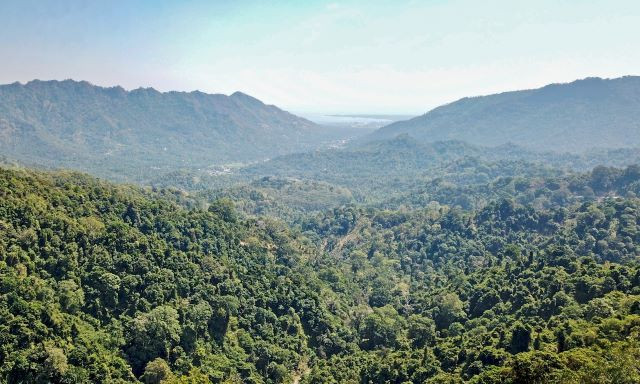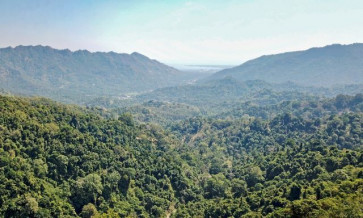Popular Reads
Top Results
Can't find what you're looking for?
View all search resultsPopular Reads
Top Results
Can't find what you're looking for?
View all search resultsGDP is way short of a comprehensive wealth measurement of a country
This new view of wealth must recognize that forests, farmland and minerals are valuable assets to be protected and managed.
Change text size
Gift Premium Articles
to Anyone
 National treasure: The West Rinjani nature park in Pemenang district in North Lombok, West Nusa Tenggara, is seen on Sept. 4, 2023, from a hill. Thanks to a forest area of about 125 million hectares, Indonesia has tremendous carbon emission absorption potential that amounts to US$565.9 billion. (Antara/Ahmad Subaidi)
National treasure: The West Rinjani nature park in Pemenang district in North Lombok, West Nusa Tenggara, is seen on Sept. 4, 2023, from a hill. Thanks to a forest area of about 125 million hectares, Indonesia has tremendous carbon emission absorption potential that amounts to US$565.9 billion. (Antara/Ahmad Subaidi)
Indonesians know how important forests, farmland and minerals are to their well-being. Yet the government invests little in assessing the benefits provided by these valuable assets.
Instead, tracking each and every shift in gross domestic product (GDP) is what preoccupies decisionmakers. This is true both here and abroad. GDP is measured four times a year by Statistics Indonesia (BPS) and similar offices the world over and plays an oversized role in deciding whether the country is “progressing” or not.
If GDP is growing, the country is doing well and the government will be applauded. If not, the calls for change will be loud and clear.
This fixation on GDP is at odds with common sense. Every corporate executive knows the value of the company’s income and assets, not just the former. This is because CEOs know that drawing down assets means income is sure to fall at some point.
Yet finance ministers focus almost exclusively on income (GDP), paying little attention to assets. This single-minded focus on GDP might have been justified generations ago, but it is no longer enough. United Nations Secretary-General António Guterres recognized this recently when he called for nations to find new measures of progress.
The question is, what lies beyond GDP?


















